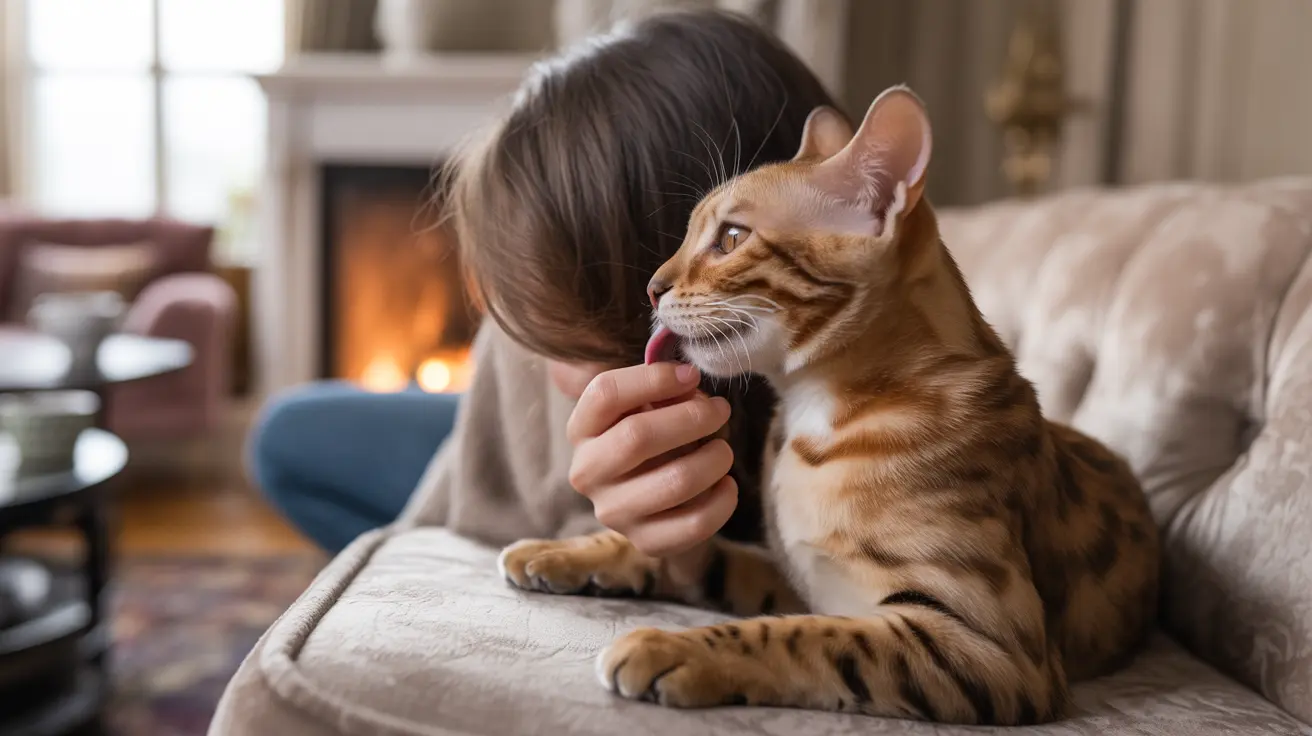If you've ever been startled awake by your cat's sandpaper-like tongue in your ear, you're not alone. Many cat owners experience this peculiar behavior and wonder about its meaning. While it might seem strange to us, there are several fascinating reasons why cats are drawn to licking human ears.
Understanding this behavior requires looking at it through the lens of natural feline instincts, social bonding, and cats' remarkable sensory capabilities. Let's explore the science and psychology behind why your feline friend has developed this intimate habit.
The Attraction to Earwax: A Natural Instinct
Cats are naturally drawn to earwax due to its unique composition. Human earwax contains proteins, fatty acids, and salts - compounds that cats find irresistible. Their keen sense of smell, which is about 14 times stronger than humans', allows them to detect these appealing components that remind them of potential food sources in nature.
While it might seem gross to us, this attraction is perfectly natural from your cat's perspective. The fatty acids present in earwax are similar to those found in their prey, triggering an instinctive response.
Social Bonding Through Grooming
When your cat licks your ear, they're often engaging in a behavior known as allogrooming - social grooming between members of the same social group. In cat communities, this behavior serves multiple purposes:
- Strengthening social bonds
- Establishing trust
- Marking territory with their scent
- Showing affection and care
By grooming your ears, your cat is essentially treating you as a valued member of their family group, demonstrating trust and affection in the way they know best.
The Role of Scent and Territory Marking
Cats use scent as a primary means of communication and territory marking. When they lick your ears, they're not just showing affection - they're also leaving their scent behind. This behavior helps them:
- Mark you as part of their territory
- Create a familiar group scent
- Establish a sense of security in their environment
Health and Safety Considerations
While ear licking is generally harmless, there are some health considerations to keep in mind:
- Excessive licking can lead to skin irritation
- There's a small risk of bacterial transfer
- Cats with dental disease should be discouraged from this behavior
- Regular veterinary check-ups can ensure the behavior isn't linked to underlying issues
How to Manage Excessive Ear Licking
If your cat's ear-licking becomes excessive or bothersome, try these management strategies:
- Redirect their attention to appropriate toys
- Provide regular playtime and environmental enrichment
- Use positive reinforcement to encourage alternative behaviors
- Maintain good ear hygiene to reduce the attraction
Frequently Asked Questions
Why does my cat lick my ears—are they attracted to the taste or smell of earwax?
Cats are primarily attracted to both the taste and smell of earwax due to its high content of proteins and fatty acids, which remind them of prey. Their superior sense of smell makes these compounds particularly appealing.
Is it normal for cats to lick human ears as a form of social bonding or grooming?
Yes, this is completely normal behavior. Cats use grooming as a way to bond with their social group, and by licking your ears, they're treating you as part of their family unit.
Can my cat licking my ears cause any health risks or infections?
While generally safe, there's a small risk of bacterial transfer or skin irritation from excessive licking. Maintaining good hygiene and limiting the behavior if it becomes excessive can prevent any potential issues.
How can I stop my cat from licking my ears if it becomes excessive or bothersome?
You can discourage the behavior through gentle deterrence, providing alternative activities, and using positive reinforcement. Regular play sessions and environmental enrichment can also help reduce excessive licking.
What does it mean when my cat licks my ear—are they showing affection or marking territory?
It's actually both. Your cat is simultaneously showing affection through social grooming while also marking you with their scent, which is a sign of belonging to their social group.
Remember, while ear licking might seem strange to us, it's a natural behavior that typically indicates trust and affection from your feline companion. If the behavior becomes problematic, working with your veterinarian can help develop appropriate management strategies while maintaining your special bond with your cat.






